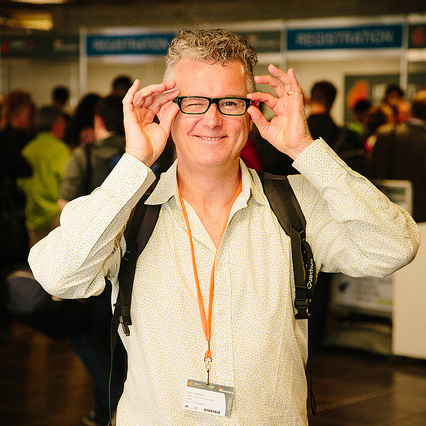The Free Movement Principle matters to Europe’s youth, so lets make sure we don’t lose it
Edited on
18 April 2016The free movement of labour principle is at the heart of the EU project. In recent years, the opportunity to study and work in other Member States has become a rite of passage for young Europeans. For cities, the ability to attract talent from across the open market is a huge benefit of EU membership. Yet recent events in Paris threaten these arrangements. Although public safety must be our priority, this must not be achieved at the cost of closing off these valuable opportunities to our young people.

Unusual Suspects
Last month I was in Glasgow for the SIX Unusual Suspects Festival. Whilst there, I stayed in a great hotel. Nothing unusual about that. The building was new, well designed and a pleasure to hang out in. But more than this, what made the experience so enjoyable was the staff, whose people skills and attention to detail were noticeably good. Nothing unusual about that either. Nor about the fact that not a single member of staff I encountered shared my Scottish accent.
Chatting with them, I met employees from Latvia, Italy and Poland. All were young graduates who had come to the city for work and experience. And Glasgow is no different to hundreds of larger cities across Europe, where in certain industry sectors you'll struggle to hear a native accent. In the honeypot metropolises like London, Amsterdam and Berlin, this pattern is especially pronounced.
And what's not to like? For young Europeans, movement has increasingly become a rite of passage. The success of programmes like ERASMUS has given the experience of study in another country to unprecedented numbers. The EU principle of labour mobility has also ensured that it has never been easier for workers within the Union to pick up their tools or laptops and head overseas.
Yet, recent events in Paris threaten to consign this arrangement to history. Fears about the ease with which terrorists can move within the Schengen area may see the reintroduction of restricted movement within Member States. This, in turn, may have negative consequences for one of the EU’s founding principles, the free movement of people and labour. Although public safety must always be a priority, I believe that protecting this principle will be important for the EU’s economic and social future. For our cities, it is sacrosanct.
The two sides of free-movement
Few would argue that the free movement of labour within the EU has been without its problems.
On the plus side, it has operated as a safety valve during the ongoing financial crisis which have particularly affected the EU's southern economies. For example, since 2008 tens of thousands of young Spaniards and Greeks have resettled in Germany, the UK and the Netherlands. In the short term, this is good for them, as it allows them to find work and, in the best cases, to pursue their desired professions. However, in the mid and longer term it may have negative consequences for those host countries that have invested heavily in their education and skills. This Brain Drain affects not only southern, but also eastern European countries.
In May I gained a stark insight into this. During the URBACT City Festival in Riga, I took part in a walkshop focused on youth employment. One of our site visits was to the Secondary School of Cultures. This state- funded institution is Latvia's premier foreign language school. There, as well as the 'standard' languages - English, Spanish and so on - students are routinely adding Mandarin, Japanese and Arabic. As you'd imagine, competition for places is fierce, and the students who make it through are seriously impressive.
A group of ten of them explained how the school works. At the end of their session, they asked if we had any questions. The most telling one was: " If we came back in ten years time, put your hand up if you think you'll still be in Riga." Only one of the ten hands went up, and there were some nervous giggles amongst the students. The conversation then got interesting as we asked where they would be by 2025. London, Berlin and New York were the answers. And what, if anything, could Riga do to keep talented polyglots like them? "Offer more exciting job opportunities" was the response.

This is the flip side of such an open labour market. While the mega- cities suck in talent from across the continent, the host cities struggle to retain the best and brightest. In spite of having invested heavily in their development, they become net exporters of talent. One of the new URBACT projects, Gen-Y-City led by Poznan, is tackling this very issue. The brain-drain challenge is not new, but has been exacerbated by the Crisis as well as by changes in technology and transport which make it much easier for employers and potential employees to connect.
At the EU level, this makes for a highly efficient labour market. But the policy has some down sides, which include the perception, particularly in the more euro sceptic places, that overseas talent is displacing opportunities for local workers. As a consequence, some clever Eurosceptic politicians are using these arguments to persuade the EU to roll back the free-movement principle.
Another criticism of this youth mobility phenomenon is that it only benefits the most advantaged in society, and therefore exacerbates widening social divisions. The claim is that programmes like Erasmus Plus, despite it wider scope, are most likely to provide opportunities to those middle class kids with ample social capital. But what about the rest? Unless we can widen the net then there is a risk that we only reinforce inequalities within society that are corrosive and ultimately bad for society.
For cities struggling to find enough opportunities for large numbers of unemployed graduates, this might seem a churlish point. But one of the quiet EU success stories in recent years has been a programme promoting mobility amongst more disadvantaged young people. From its start in Germany in 2008 the IdA programme has gone from strength to strength so that it now covers several Member States. A wide range of disadvantaged young people have benefited, including over 10,000 with disabilities.
Thanks to programmes like these, mobility is increasingly viewed as a basic right for all young Europeans.
In conclusion
Across Europe we need more programme like IdA, which open pathways to all young people, reinforcing the message of an equal open labour market. That is not to ignore the dangers posed by an open borders policy, which are real and must be addressed. But those who wish to close our borders – whether to refugees or young workers – will try to manipulate the current crisis to achieve their objectives. For Europe’s young people and for its cities, this would be a tragedy.
Main Photo: © Doji1989 | Dreamstime.com
Second Photo: © Rawpixelimages | Dreamstime.com
 Submitted by Eddy Adams on
Submitted by Eddy Adams on



